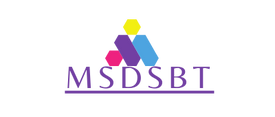What Skills Do You Need to Future-Proof Your Career?
The future of work is constantly evolving, and the skills required for career success are changing just as quickly. As industries embrace automation, artificial intelligence, and new technologies, professionals must adapt to remain competitive. So, how can you future-proof your career? The key lies in cultivating a combination of hard and soft skills that will not only help you keep up with emerging trends but also thrive in a rapidly changing job market. In this article, we’ll explore the essential skills you need to develop to ensure your career remains relevant, adaptable, and successful in the years to come.
1. Why Future-Proofing Your Career Matters
As technology advances, traditional roles may evolve or become obsolete. Future-proofing your career means preparing yourself for those changes by acquiring skills that are resilient to technological disruption. It’s no longer enough to simply rely on technical expertise in one field; you must continuously adapt and grow. Future-proofing will allow you to:
- Stay competitive in a dynamic job market
- Adapt to changing technologies and industries
- Enhance your employability and job security
- Be ready for new roles that didn’t exist before
Having a proactive mindset toward skill development is crucial to staying relevant in your career.
2. Critical Thinking and Problem-Solving Skills
As automation and artificial intelligence take over routine tasks, humans will be increasingly required to focus on higher-level thinking. Critical thinking and problem-solving are indispensable skills in today’s workplace.
2.1 Critical Thinking
Being able to analyze situations, understand complex issues, and evaluate solutions critically is a skill that machines still struggle with. In a future-proof career, you will need to:
- Assess situations from multiple angles
- Make decisions based on analysis, logic, and evidence
- Approach challenges creatively
2.2 Problem-Solving
The ability to solve complex, unstructured problems will be highly valued in any industry. Developing this skill means not only identifying issues but also devising effective solutions under pressure. Learn to:
- Break down problems into manageable steps
- Use data to inform your decisions
- Develop innovative solutions that add value to your organization
3. Digital Literacy and Tech Savviness
Digital literacy is the foundation of future-proofing your career. Whether you’re in a tech-focused role or a non-technical field, understanding how to leverage technology is essential.
3.1 Basic Digital Skills
At a minimum, you need to be comfortable with:
- Email communication
- Social media platforms for professional use
- Microsoft Office Suite or similar tools
3.2 Advanced Tech Skills
As digital transformation accelerates, more advanced skills will be necessary, including:
- Data Analysis: Understanding how to interpret and leverage data will be valuable for any role, especially in industries like finance, marketing, and healthcare.
- Coding and Programming: Familiarity with programming languages (Python, Java, HTML, etc.) can open new doors, even for those outside traditional tech fields.
- AI and Automation: Understanding how artificial intelligence and automation work will help you integrate new technologies into your workflow and adapt to changes.
4. Emotional Intelligence (EQ)
While technical skills are essential, emotional intelligence (EQ) is what truly differentiates individuals in the workplace. As AI takes over more technical tasks, human skills like empathy, collaboration, and communication will become even more valuable.
4.1 Self-Awareness
Understanding your own emotions and how they influence your behavior is key to managing your reactions in a professional environment.
4.2 Empathy
The ability to understand and share the feelings of others is critical for teamwork and leadership. A high EQ enables you to connect with colleagues and clients, which will be increasingly important as remote and hybrid work models become more common.
4.3 Social Skills
Building strong relationships, managing conflicts, and networking effectively will help you navigate a dynamic work environment. These interpersonal skills will be essential, regardless of your industry.
5. Adaptability and Resilience
As technology and industries continue to evolve, adaptability will be one of the most important skills to future-proof your career. You need to be able to learn new skills, adjust to new environments, and thrive under uncertainty.
5.1 Adaptability
Embrace change by:
- Learning new skills quickly
- Being open to new job roles and responsibilities
- Exploring new technologies and ways of working
5.2 Resilience
As career paths become less linear, resilience—the ability to bounce back from setbacks—is essential. To develop resilience:
- Embrace challenges as learning opportunities
- Stay optimistic and persistent during difficult times
- Be proactive in managing stress and maintaining work-life balance
6. Leadership and Management Skills
Even if you don’t currently hold a managerial role, having leadership skills is essential for future-proofing your career. Strong leadership is about more than just managing teams; it’s about inspiring, guiding, and empowering others.
6.1 Communication and Influence
Effective communication is a cornerstone of leadership. Being able to clearly articulate ideas, give feedback, and influence others will be important in any role.
6.2 Project Management
As businesses grow and projects become more complex, understanding project management principles will be critical. This includes:
- Managing resources effectively
- Meeting deadlines
- Leading cross-functional teams
6.3 Decision-Making and Delegation
Being able to make well-informed decisions quickly and delegate tasks to the right people will set you apart from others in leadership roles.
7. Collaboration and Teamwork
Even with the rise of automation and AI, collaboration will remain a core aspect of the workplace. The ability to work effectively with others, both in person and remotely, is essential.
7.1 Cross-Functional Collaboration
As the workforce becomes more global and interconnected, being able to work with individuals from diverse backgrounds and areas of expertise is key.
7.2 Remote Teamwork
With the rise of remote work, the ability to collaborate effectively in virtual environments will be increasingly important. This includes:
- Using digital collaboration tools (Slack, Zoom, Microsoft Teams, etc.)
- Managing time zones and flexible work hours
- Staying connected despite physical distance
8. Creativity and Innovation
As machines take over routine tasks, human creativity will become more valuable. Being able to think outside the box and innovate is essential for future-proofing your career.
8.1 Creative Problem-Solving
The ability to approach challenges in new ways and develop creative solutions will give you an edge over others who may rely solely on traditional methods.
8.2 Innovation Mindset
Being proactive in suggesting new ideas, improving processes, or finding new ways to add value to your organization is key.
9. Lifelong Learning and Continuous Development
To remain competitive, you must commit to lifelong learning. The world of work is changing so rapidly that staying static is not an option. Embrace opportunities for:
- Formal Education: Completing degrees or certifications
- Informal Learning: Taking online courses or attending webinars
- Self-Improvement: Reading books, attending conferences, or joining professional groups
Conclusion
Future-proofing your career requires a combination of hard skills, soft skills, and a mindset that embraces change. By developing your emotional intelligence, technical skills, creativity, and leadership abilities, you will be better prepared to adapt to whatever the future of work holds. Whether you’re just starting your career or looking to pivot, cultivating these skills will ensure that you not only survive but thrive in the ever-evolving job market.

